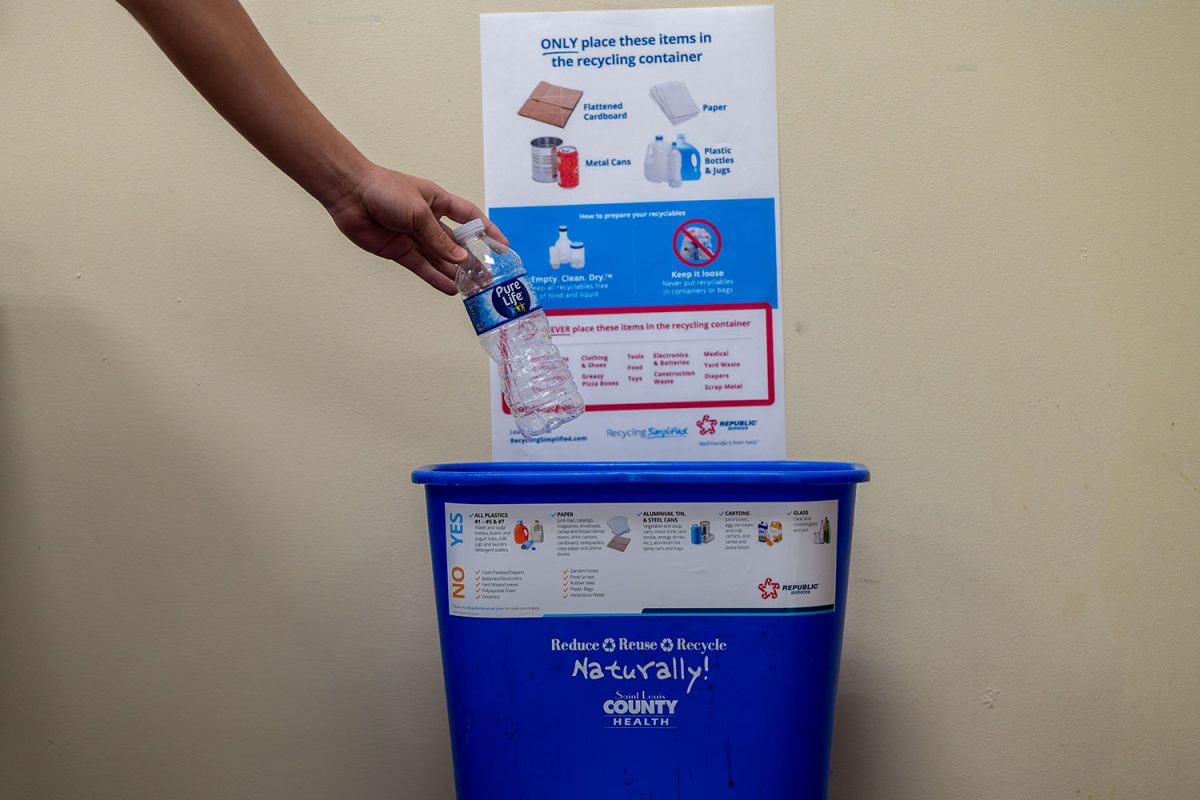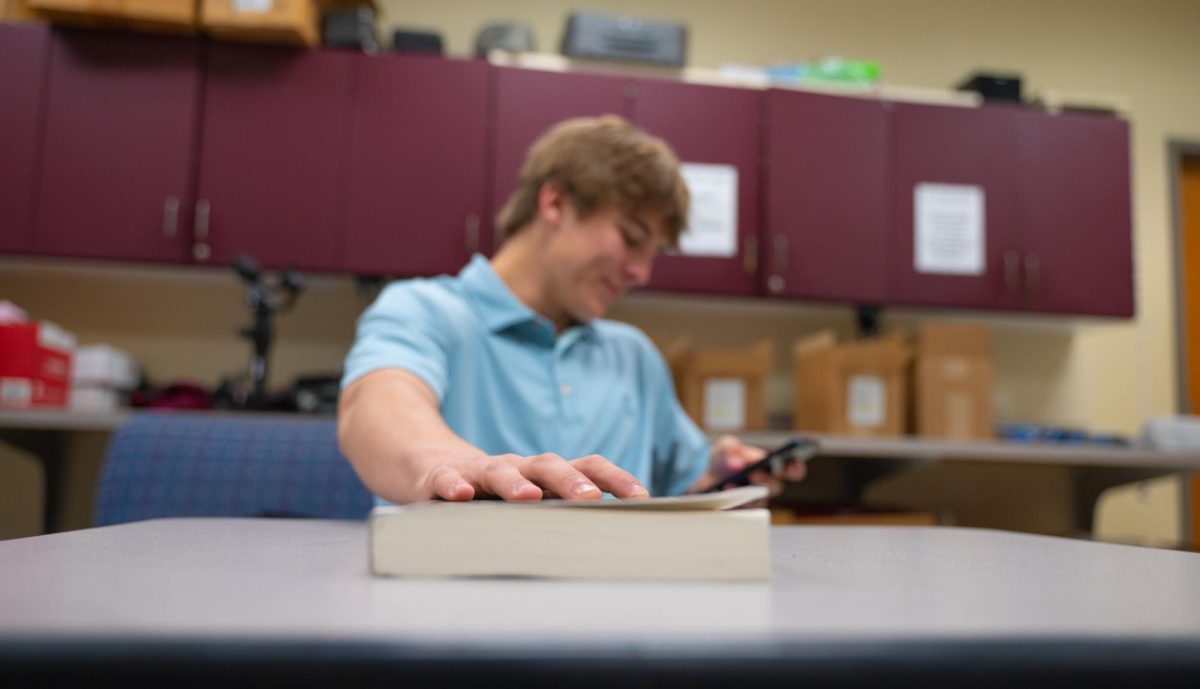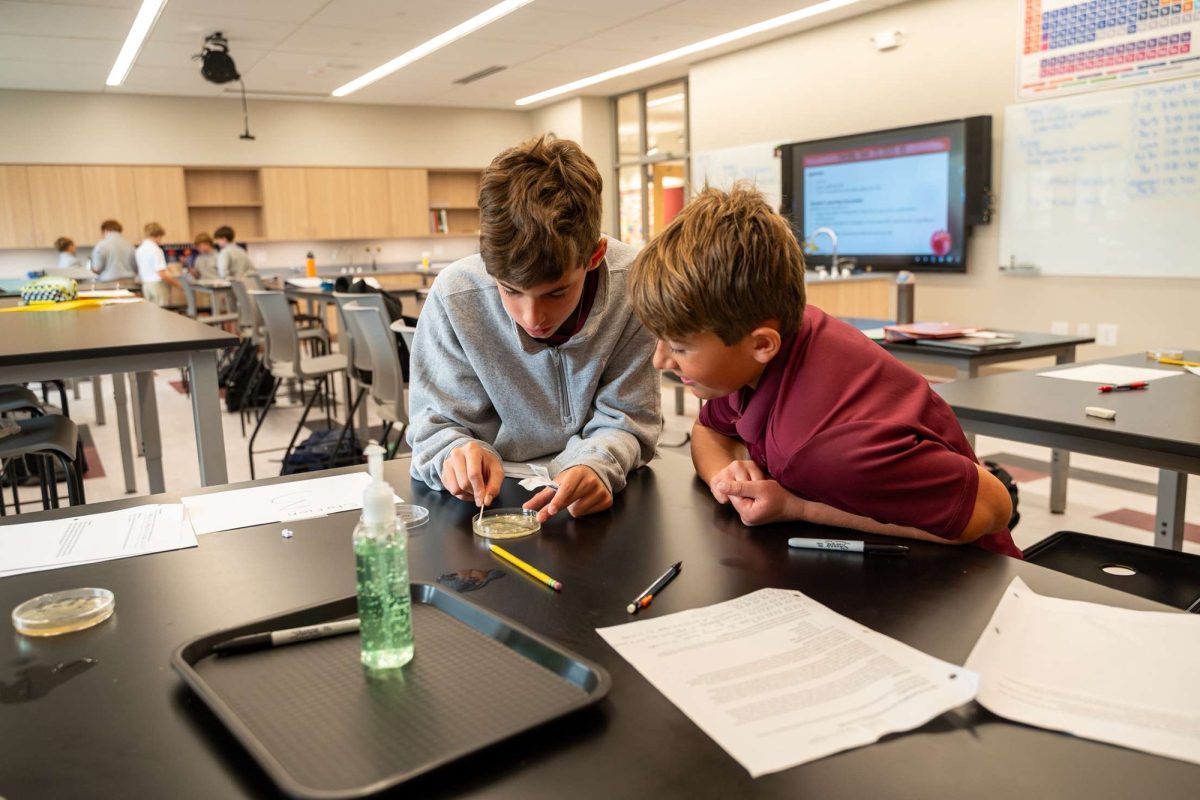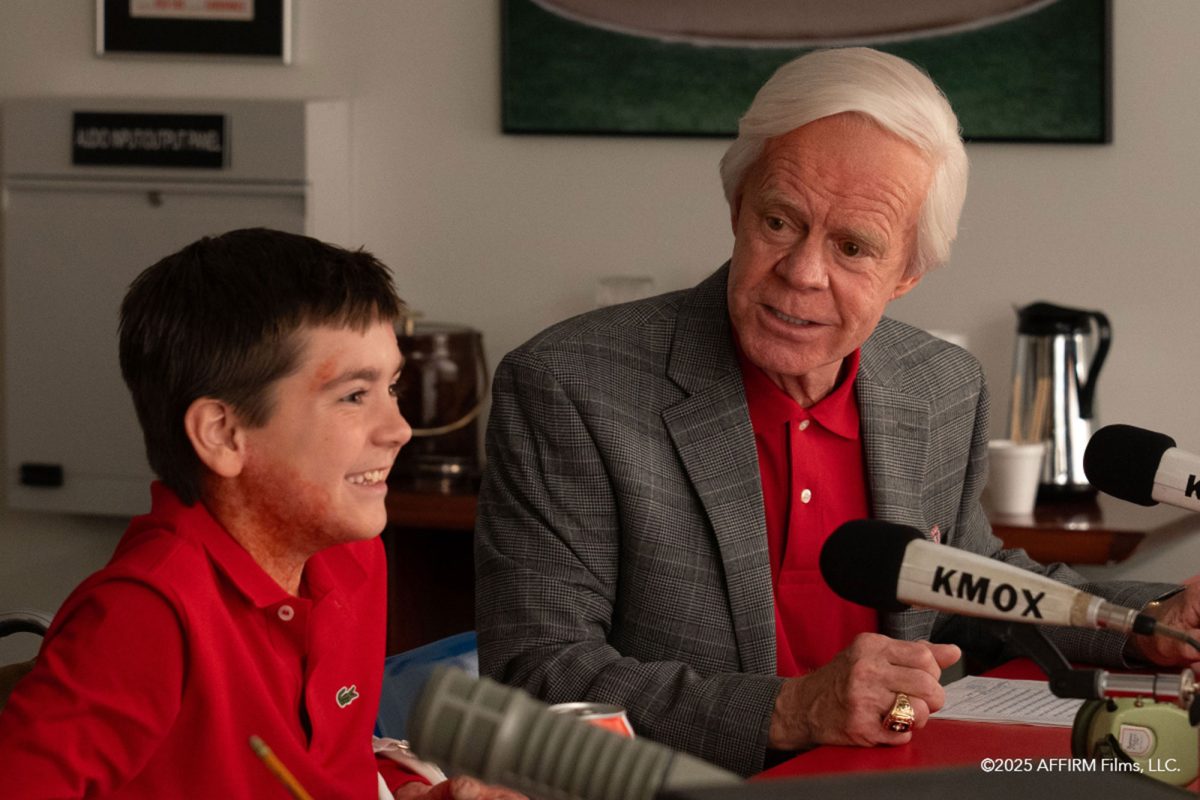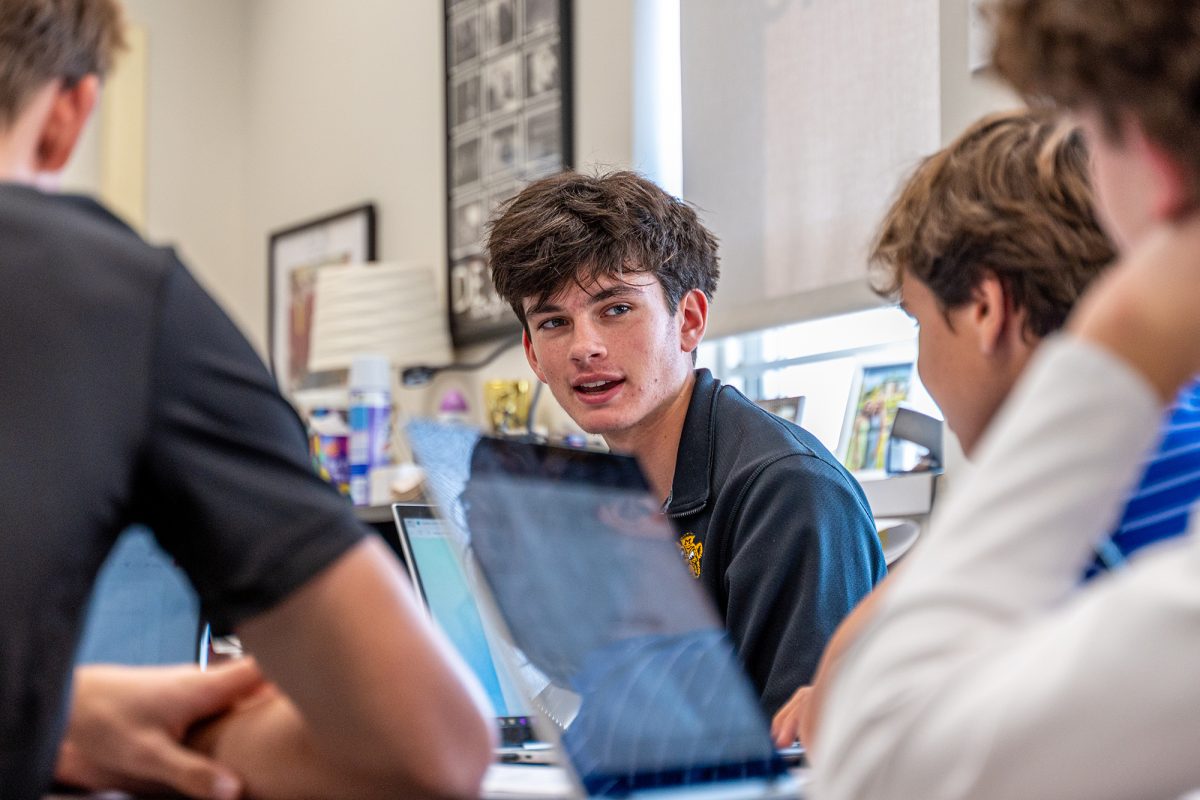The school needs to be more environmentally friendly, and it all starts with you. The school’s student-led Green Team has already created initiatives to focus on, regarding its environmental issues. The school needs to be more aware of sustainability issues, such as learning how to recycle and compost. Also, the removal of paper and plastics in the cafeteria will largely help the problem. If all of these plans are done properly by the rest of the school, then the campus will become a much more environmentally friendly place.
First off, the school’s lack of knowledge regarding recycling and composting needs to change. Currently, the state of Missouri has a 46% recycling rate which ranks 19th out of all 50 states. Also according to Ksdk.com, the St. Louis area has lots of recycling that ends up in landfills, as just around 30% of its alley recycling bins end up being recycled. This is because most people do not know much about recycling and how to do it. Being aware of what is going on is the first step to success. Right now the school is recycling, but can do a better job at it. Many people are recycling wet materials and do not rinse out their bottles before throwing them away. The cafeteria uses lots of single-use plastics, which means every student and staff member needs to know how to properly recycle. Three steps to keep in mind when recycling are empty, clean, and dry. Along with recycling, the Green Team also wants to incorporate compost bins in the cafeteria. This will allow students’ and staff’s leftover food not to go to waste. The Yale Center for Clinical Investigation found that 67% of schools do not have a composting program, and food waste is the most common material generated by schools. All of the compost can be used as valuable fertilizer that can enrich soil and plants around the campus.
The Green Team also wants to get rid of all plastic condiments and utensils in the cafeteria. Right now the school offers individual miniature packets of condiments, which are used in large quantities by a majority of the school. Utensils are also used by a majority of the students and staff. Around 700 people eat lunch at the school each day, so utensils and condiments are a very frequently used material. Instead of these two plastic resources, there will be compostable utensils and pumps of condiments, so students and staff can pump their choice of condiments onto their plates. With the removal of these two plastic materials, the school will be able to compost more and be more environmentally sound.
Being one of 62 Jesuit high schools in America, we must follow the Universal Apostolic Preferences. These preferences unite us in our journey and serve as a point of reference to the Society of Jesus. Creating a more environmentally friendly campus ties into the Apostolic Preference of caring for our common home. The earth is our common home and it was created by God. Being environmentally friendly will help preserve God’s creation and positively impact our world. The Preference, caring for our common home states, “whole nations and peoples need an ecological conversion if we are to be honest custodians of this wonderful planet.” Recycling, composting, and getting rid of plastics all help us be honest custodians of our school and our planet.
Some may say that what our school is doing is so small it won’t make a difference in the world. If we all think like this then our world is never going to positively change. What the school is doing will make a difference, because we are not alone, other schools are already taking a stand. Schools that are not taking a stand can look at what we are doing and follow us in our mission to make our school and world a more environmentally safe community.
In conclusion, creating a more environmentally friendly school starts with all of us. The Green Team has proposed key initiatives such as proper recycling, composting, and eliminating single-use plastics. These all align with our Jesuit values and the call to care for our common home. While these changes may seem small, collectively they can inspire broader action and make a real difference in our community and our world. By following these steps, we fulfill our responsibility as good stewards of the earth, honoring both our school and our planet. Together, we can lead the way toward a sustainable future.

